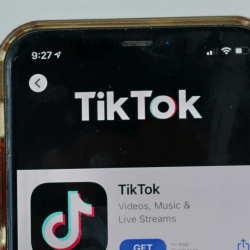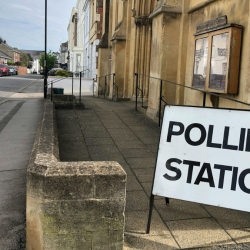If you’re one of the 47 million adults in the UK who can vote, this election is important for you as an enfranchised individual. Your predecessors rioted, went to prison and even died for the right we now can take for granted. But as a marketer, what’s the big deal with the next few weeks?
It’s all about considering the short-term returns
At TKF, we’ve been tracking how elections affect our clients’ short-term results since 1997. We’ve found that elections, like the Olympics, the death of a monarch, and natural disasters, distract people. They still see the ads, but they’re less likely to act on them. The biggest impact we see is in campaigns aimed at getting new customers, like getting people to subscribe to a service or buy a product for the first time.
During the three weeks before an election, response rates can drop by up to 50% compared to the average rates in the three months before the election was announced. This pattern holds true across all types of media — print, broadcast, and digital. Therefore, we recommend our clients evaluate their ability to sustain a potential 50% drop in response and consider strategic adjustments to their acquisition campaigns during this period if necessary.
Who are the missing 50%?
Our working hypothesis is that people have to be interested in politics to be affected. Since 31.9 million of us voted last time, we tried to narrow it down further. Unsurprisingly given its genesis, YouGov turned out to be a great tool for this. It helps us identify around 10 million UK adults who say they are engaged with both politics and politicians.
This group is two to three times more likely than the rest of us to listen to political podcasts, read political books or articles, or watch election specials on TV. This is where you find political activists and party members.
But who is this audience beyond that?
- Demographically, our 10m politically engaged are a touch dull
They are a bit older — about 15% more likely to be over 50. They’re also slightly less likely to have finished education by age 19, but only by 10% vs the population as a whole. They are 50% more likely to be students (remember those hopeful, revolutionary days), but other than that, they are just as likely to be working full-time as they are to be retired. This is EveryWoman. - They are omnivorous in their news consumption
Instead of avoiding the news, these people are news junkies, happily consuming it on the radio, in print, on TV, on news websites, or through the wild west of social media. This might explain why they get distracted from our well-meaning commercial messages. - And very keen to get on with the election
When asked in March when they thought the election should be, 57% wanted it to happen by this summer. No sign of indifference or delayed gratification here. All of this reinforces our belief that this is a significant audience — a large group distracted by the political circus in town. Here are 10 million people for whom normal life has been put on hold for a month or so. - In normal times, they spend
These are the regular donors to charities, happy Netflix subscribers, and potential gym joiners. They plan to buy a car and move house within the next year. They use price comparison sites, enjoy researching holidays, and look for profitable ways to invest their money — at least, they do in normal times.
Which brings us back to why we’re missing a response from them during an election. Normally, they’d be responding to our content, but right now they’re focused on all the political stuff. These 10 million people are why acquisitions are slow this month.
So, how should you respond today?
We see two actionable insights from what started as a bit of curiosity: in the short term, consider targeting and increasing efforts toward the politically engaged after the election. The good news is they’ll have pent-up spending power and will eventually return to normal life. For about a month they’ll have some ‘catch-up consumption’ to do, which is a great opportunity for brands. In the long term, think about the next election.
Instead of halting all acquisition activity, advertisers might want to test targeting the politically disengaged i.e. those who find the Euros more interesting than the election chaos.
And finally, our research shows that campaigns aimed at current customers are much less affected, with only about a 15% drop. So if you’re worried about a 50% drop in response for acquisition campaigns, why not focus on organic growth during an election and pick up with the politically active once the spotlight is off Westminster?
Featured image: Yan Krukau / Pexels
































